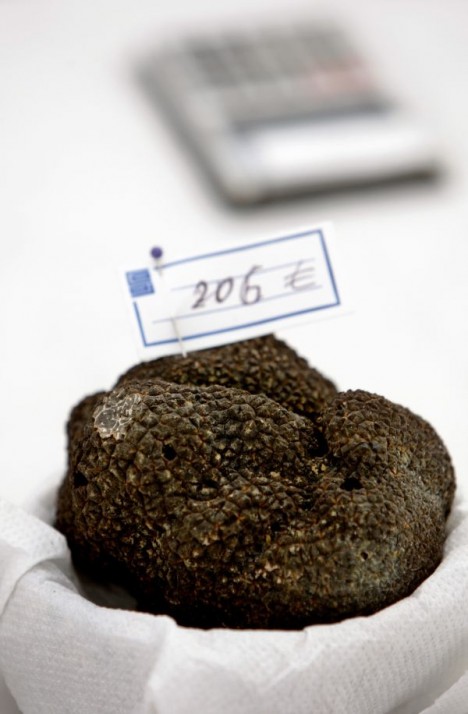Climate change may make truffles a German delicacy
Truffles, a luxury delicacy in French and Italian cuisine, may soon be adding flavour to blander dishes, as it migrates further north amid climate change. Ulf Buentgen, a climatologist, told AFP that a rise in average temperature observed during 20th century may be shifting the natural habitat of the delicacy about 100 kilometres north, from […]

Truffles, a luxury delicacy in French and Italian cuisine, may soon be adding flavour to blander dishes, as it migrates further north amid climate change.
Ulf Buentgen, a climatologist, told AFP that a rise in average temperature observed during 20th century may be shifting the natural habitat of the delicacy about 100 kilometres north, from France and Italy to Germany.
During an expedition in southern Germany last year with a specially-trained Italian truffle-scenting dog, the climatologist at the Swiss Federal Institute of Technology in Zurich found some two kilograms of Burgundy truffles.
Buentgen, who ate the truffles, explained that such finds had rarely been reported, but could be explained by climate change, “which translates in an an isothermal upward shift of around 100 miles (110km).”
The preliminary finding has led to a more extensive ongoing study, which has so far turned up a further 210 sites with truffles since last summer in eastern Switzerland and Germany.
The find could prove lucrative for northern European states as the much sought-after warty fungi used to flavour up anything from pasta dishes to sausages can fetch up to 1,000 euros (1,432 dollars) a piece.
In November 2010, Macau casino tycoon Stanley Ho reportedly paid $330,000 for two white truffles weighing a total of about 1.3 kilograms during an auction in Macau, matching the price he paid two years earlier for a single 1.5 kilogram specimen.
However, surprisingly little is known about the mushroom.
“Scientists do not even really understand how and where truffles grow,” said Buentgen.
“They grow below ground, and basically when you find one, you just killed it. So you can’t even know if it was there for two weeks or two months,”
“But what we do know, is that in the traditional Mediterranean sites where truffles are grown, for the past 30 years there has been a deline in harvest.
“This could be evidence that this (German) find is related to climate change,” added the scientists.
Nevertheless, he noted that further studies were required, citing “enormous scientific, economic, and gastronomic importance.”
Source: AFPrelaxnews





